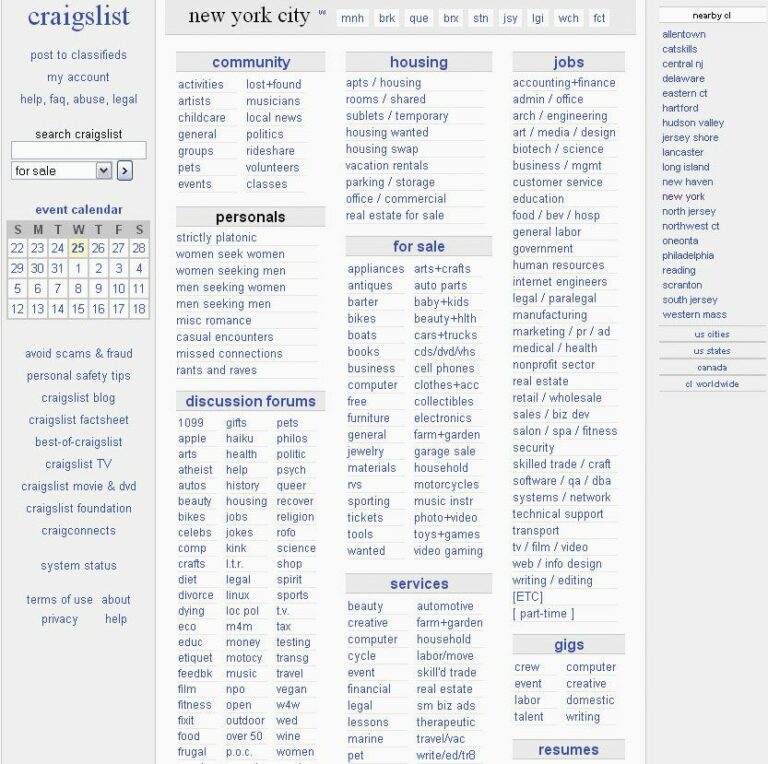Diesel Rental Trucks: Your Comprehensive Guide to Power, Efficiency, and Performance
Diesel Rental Trucks: Your Comprehensive Guide to Power, Efficiency, and Performance typestruckssale.com
In the world of logistics, construction, moving, and heavy-duty hauling, the choice of vehicle is paramount. While gasoline trucks serve many purposes, a specific class of workhorse stands out for its raw power, fuel efficiency under load, and unwavering reliability: Diesel Rental Trucks. These robust machines are the backbone of countless operations, offering superior torque and endurance for tasks that demand more than an ordinary vehicle can provide.
This comprehensive guide will delve into every aspect of diesel rental trucks, from understanding their unique advantages to navigating the rental process, ensuring you make an informed decision for your next big haul.
Diesel Rental Trucks: Your Comprehensive Guide to Power, Efficiency, and Performance
Why Choose Diesel? The Core Advantages
Diesel engines have long been the preferred choice for heavy-duty applications, and for good reason. When it comes to renting a truck for significant tasks, diesel offers distinct advantages:
- Superior Torque and Towing Capacity: Diesel engines are renowned for producing high torque at lower RPMs. This translates directly into immense pulling power, making them ideal for transporting heavy loads, navigating steep inclines, and towing substantial trailers without straining the engine. If your cargo is dense, bulky, or requires a liftgate, diesel is almost always the more capable option.
- Enhanced Fuel Efficiency Under Load: While diesel fuel might sometimes be pricier per gallon than gasoline, diesel engines are inherently more fuel-efficient, especially when operating under heavy loads. Their higher compression ratios and the energy density of diesel fuel mean you’ll often travel further on a tank, reducing fuel stops and overall operating costs for long hauls or continuous use.
- Durability and Longevity: Diesel engines are built to withstand immense pressure and continuous operation. Their robust construction and design contribute to a longer lifespan and greater reliability, which is critical for rental vehicles that endure diverse operational demands. This durability minimizes breakdowns and ensures consistent performance.
- Reliability and Consistent Performance: Engineered for commercial and industrial use, diesel trucks are proven workhorses. They are designed for high mileage and demanding conditions, offering dependable performance day in and day out, which is crucial when your schedule depends on it.

Common Applications of Diesel Rental Trucks
The versatility of diesel rental trucks makes them indispensable across a wide spectrum of industries and personal needs:
- Commercial Hauling: From construction materials like lumber, steel, and concrete to heavy machinery, equipment, and bulk goods, diesel trucks are the go-to for businesses needing to move significant weight efficiently.
- Industrial Use: Warehousing, manufacturing, and logistics companies frequently rent diesel trucks for inter-facility transfers, supply chain management, and distribution.
- Large-Scale Moving: Whether it’s a large residential move, relocating an office, or transporting an entire household, diesel box trucks (like 24-foot or 26-foot models) provide the space and power needed to get the job done in fewer trips.
- Specialized Transport: Many specialized trucks, such as refrigerated (reefer) units, flatbeds for oversized cargo, and dump trucks for aggregates, are exclusively diesel-powered due to their specific operational requirements.
- Event Logistics: Transporting stages, sound equipment, lighting, and other large components for concerts, festivals, or trade shows often requires the heavy-duty capabilities of a diesel rental truck.

Types of Diesel Rental Trucks Available

The range of diesel rental trucks varies significantly by provider, but generally includes:
- Medium-Duty Box Trucks: These are the most common diesel rental trucks, typically ranging from 16 feet to 26 feet in length. They are ideal for moving furniture, appliances, and general cargo. Many come equipped with liftgates for easier loading and unloading.
- Stake Bed Trucks: Featuring an open bed with removable stakes, these are excellent for transporting oddly shaped items, construction debris, or materials that need to be loaded from the side.
- Flatbed Trucks: Used for oversized or heavy equipment that can be secured directly onto the flat, open platform.
- Tractor Units (Semi-Trucks): For very large commercial operations, some rental companies offer tractor units designed to pull various types of trailers (dry vans, flatbeds, refrigerated units). These typically require a Commercial Driver’s License (CDL).
- Specialty Vehicles: This category includes dump trucks, refrigerated trucks, and other highly specialized vehicles that are almost always diesel-powered.
Renting a Diesel Truck: A Step-by-Step Guide
Renting a diesel truck involves a few crucial steps to ensure a smooth and successful experience:
- Determine Your Needs: Accurately assess the weight and volume of your cargo, the distance you’ll be traveling, the duration of the rental, and any special features required (e.g., liftgate, refrigeration). This will dictate the size and type of truck you need.
- Research Rental Companies: Major players like Penske, Ryder, U-Haul, and Budget, along with numerous local commercial rental agencies, offer diesel trucks. Compare their fleets, pricing, and terms.
- Check Driver Requirements: Verify age limits (often 21 or 25), driving record requirements, and especially licensing needs. Most box trucks under 26,001 lbs GVWR (Gross Vehicle Weight Rating) do not require a CDL for non-commercial use, but always confirm.
- Understand Pricing: Rental costs typically include a daily/weekly rate, a per-mile charge, and fuel. Inquire about insurance options, environmental fees, and any other potential charges.
- Pre-Rental Inspection: Before driving off, thoroughly inspect the truck for existing damage (dents, scratches, tire condition, fluid levels, lights). Take photos or videos as proof.
- Fueling: Understand the fuel policy (full-to-full, or pay for refuel). Crucially, ensure you only use diesel fuel. Misfueling with gasoline can cause severe and costly engine damage. Know where diesel pumps are located (often separate from gasoline pumps at service stations).
- Return Process: Follow the rental company’s instructions for returning the vehicle, including fuel levels and inspection.
Important Considerations When Renting Diesel
Beyond the basic steps, keep these critical points in mind:
- Fueling: This cannot be stressed enough: Diesel Fuel ONLY. Diesel pumps are usually green or yellow, and the nozzle is typically larger than gasoline nozzles. If unsure, ask an attendant.
- Driving Experience: Diesel trucks, especially larger ones, handle differently than passenger cars. They have longer braking distances, larger blind spots, and require wider turns. Practice in a safe area before hitting the road.
- Pre-Trip Maintenance Checks: Before each drive, perform a quick walk-around inspection: check tire pressure, lights, turn signals, and mirrors. Ensure all doors are securely latched.
- Insurance: Your personal auto insurance may not cover rental trucks. Rental companies offer various insurance plans (Collision Damage Waiver, Supplemental Liability Insurance). Evaluate these options carefully or consult your insurance provider.
- Licensing Requirements: For most personal moving purposes, a regular driver’s license is sufficient for box trucks up to 26 feet. However, if the truck’s GVWR exceeds 26,000 lbs, or if you are transporting hazardous materials or a large number of passengers for hire, a CDL will be required. Always confirm with the rental agency.
- Weight Limits: Understand the truck’s payload capacity (how much weight it can carry) and GVWR. Overloading can be dangerous and illegal.
- Route Planning: Plan your route in advance, considering bridge heights, weight restrictions on roads, and tight turns. Truck-specific GPS apps can be invaluable.
Tips for a Smooth Diesel Truck Rental Experience
- Book in Advance: Especially during peak seasons (summer, holidays), secure your truck well ahead of time.
- Understand the Fuel Policy: Clarify whether you need to return the truck with a full tank or if there’s a refueling charge.
- Document Everything: Take photos or videos of the truck’s condition before and after your rental.
- Load Evenly and Securely: Distribute weight evenly across the truck bed, with heavier items at the bottom and center. Use straps, ropes, and moving blankets to secure items and prevent shifting.
- Drive Defensively: Allow extra following distance, brake earlier, and anticipate turns. Be aware of the truck’s height and width clearances.
- Factor in Extra Time: Driving a large truck, fueling, and loading/unloading will take more time than you anticipate. Build in buffer time.
Sample Diesel Rental Truck Price Table
Please note: These prices are estimates and can vary significantly based on location, rental company, season, demand, availability, and specific vehicle features. Always get a direct quote.
| Truck Type/Size | Daily Rate (Est.) | Weekly Rate (Est.) | Per-Mile Charge (Est.) | Key Features | Est. Fuel Economy (MPG Loaded) |
|---|---|---|---|---|---|
| 16-Foot Box Truck | $99 – $149 | $400 – $600 | $0.69 – $0.89 | Ramp/Walkboard, Basic Cargo Space | 8 – 12 MPG |
| 24-Foot Box Truck | $119 – $199 | $500 – $800 | $0.79 – $0.99 | Liftgate (often), Larger Cargo Space, Air Brakes | 7 – 10 MPG |
| 26-Foot Box Truck | $129 – $229 | $550 – $950 | $0.89 – $1.09 | Liftgate (standard), Max Cargo Capacity (Non-CDL) | 6 – 9 MPG |
| 12-Foot Stake Bed | $109 – $179 | $450 – $750 | $0.75 – $0.95 | Open Bed, Removable Stakes, Versatile Loading | 8 – 11 MPG |
| Tractor Unit (Class 8) | $250 – $500+ | $1000 – $2000+ | $0.20 – $0.40 | Air Ride Suspension, Sleeper Cab (often), CDL Req. | 5 – 8 MPG |
| Refrigerated Truck | $200 – $400+ | $800 – $1800+ | $0.99 – $1.29 | Temperature Controlled Cargo Area, Liftgate (often) | 6 – 9 MPG |
Frequently Asked Questions (FAQ) about Diesel Rental Trucks
Q1: Do I need a CDL (Commercial Driver’s License) to drive a diesel rental truck?
A1: For most personal moving or non-commercial purposes, a standard Class D driver’s license is sufficient for box trucks up to 26 feet in length, provided their Gross Vehicle Weight Rating (GVWR) is under 26,001 pounds. However, if you’re renting a semi-truck (tractor unit) or a truck with a GVWR over 26,000 lbs, or for commercial purposes that require it, a CDL will be necessary. Always confirm with the rental agency.
Q2: What kind of fuel do I put in a diesel rental truck?
A2: ONLY DIESEL FUEL. Misfueling with gasoline will cause severe, expensive, and irreparable damage to the engine. Diesel pumps are typically green or yellow and have a larger nozzle than gasoline pumps. Pay attention to the pump labels.
Q3: Are diesel trucks harder to drive than gasoline trucks?
A3: They can feel different. Diesel trucks often have more power and torque, but also heavier steering and braking, and a larger turning radius. They require more attention to blind spots and overall dimensions. It’s advisable to take some time to get accustomed to the vehicle in a safe, open area before driving in traffic.
Q4: What about insurance for a diesel rental truck?
A4: Your personal auto insurance policy may not cover rental trucks, especially larger commercial-grade vehicles. Rental companies offer various insurance options (e.g., Collision Damage Waiver, Supplemental Liability Insurance). It’s highly recommended to consider these or check with your personal insurance provider or credit card company to understand your coverage.
Q5: Can I tow a trailer with a rental diesel truck?
A5: This depends on the specific rental company and the truck model. Some rental trucks are equipped with tow hitches, while others are not. Always inform the rental agency of your intention to tow, as there may be specific requirements, restrictions, or additional fees.
Q6: What’s the difference between GVWR and payload?
A6:
- GVWR (Gross Vehicle Weight Rating): This is the maximum permissible total weight of the truck itself plus its payload (cargo, passengers, fuel, etc.) as determined by the manufacturer.
- Payload: This is the maximum weight of cargo and passengers that the truck is designed to carry. It’s calculated by subtracting the truck’s empty weight (curb weight) from its GVWR. Always ensure your loaded weight does not exceed the truck’s payload capacity.
Q7: Are diesel rental trucks more expensive to rent than gasoline trucks?
A7: Generally, yes. Diesel trucks are built for heavy-duty work, are more expensive to manufacture, and often command higher rental rates. However, their superior fuel efficiency under load and greater power can lead to overall cost savings for demanding jobs, making them a more economical choice in the long run for heavy hauling.
Conclusion
Diesel rental trucks are powerful, efficient, and durable workhorses designed for the toughest jobs. Their superior torque, fuel economy under load, and robust construction make them the ideal choice for commercial hauling, industrial applications, and large-scale personal moves. By understanding their unique advantages, familiarizing yourself with the rental process, and adhering to crucial considerations like proper fueling and safe driving practices, you can leverage the full potential of these formidable vehicles. When the task demands strength and reliability, a diesel rental truck is often the most intelligent and effective solution.



